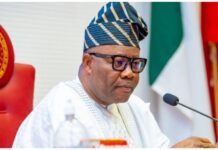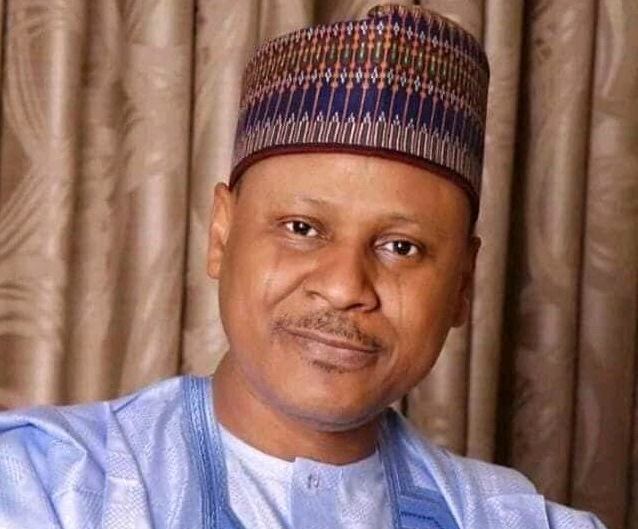There is a Yoruba saying that “A ki dupe ara eni”(meaning self praise is not praise worthy). And that’s precisely why this singular self praise is significant! As an active participant in the five year-long “strain within the ranks of Organized Labour in Nigeria”.
I bear witness that the renewed unity is in the fullest of time and commendable! Better late! NLC’s Press Release aptly sums up the imperative and desirability of the new united labour movement: “The leadership of the Nigeria Labour Congress and the United Labour Congress wish to announce to the world that the strain within the ranks of Organized Labour in Nigeria has been resolved. The Nigeria Labour Congress led by Comrade Ayuba Wabba, mni has FULLY RECONCILED with the United Labour Congress (ULC) led by Comrade Joe Ajaero. Nigerians would recall that after the conduct of leadership election in the Nigeria Labour Congress (NLC) at the 10th National Delegates Conference in 2015, some misunderstanding arose between some affiliates of Congress. Efforts by Labour veterans such as the pioneer President of the Nigeria Labour Congress, Comrade Hassan Sunmonu and a former President of the NLC, Comrade Adams Oshiomhole to resolve the issue were inconclusive. …..The outcome of this quiet but sustained effort at making the peace is the fruit of the reconciliation that we are celebrating today has been resolved.”
Unity is the cardinal principle of trade unionism. This has been a recurring theme in my written reflections on “Labour and Trade Unions” as well as active praxis in the past four decades. As the General Secretary of National Union of Textile, Garment Textile Union ( NUTGTWN );between March 10, 2000 – March 30, 2020, I bear witness that a cohesive indivisible movement is an indispensable precondition for the Union’s acknowledged achievements in wage improvements, defense of workers’ rights and advocacy for industrial renewal over the past four decades. Indeed the motto of textile union is “Unity, Justice and Diligence”. No price is too much to ensure unity just as the costs of disunity are better not incurred. NLC marked 40th anniversary of the present structure/formation in 2018. As a pioneer Head Economics/Research Department of Nigeria Labour Congress (NLC), ( 1987 – 1989), two terms elected Vice President, Nigeria Labour Congress (NLC), 2007 – 2015 and many years CWC and NEC member of NLC, I bear witness that the landmark negotiated five national minimum wages since 1981, are dividends, among many others of a United labour movement. It is refreshing that the leadership of the Nigeria Labour Congress and the United Labour Congress had agreed to close ranks under a new indivisible NLC, following the rift after the controversial conduct of leadership election in the Nigeria Labour Congress (NLC) at the 10th National Delegates Conference in 2015 . It’s also gratifying that “the leadership and structures of the United Labour Congress have been reintegrated into the Nigeria Labour Congress” to the the satisfaction of both parties.
The importance of a strong organized labour movement not just for the welfare of worker-members but for the growth of the enterprises/ workplaces and development of the nation cannot be overstated. One united NLC has delivered services to workers, citizens in general and productivity to the nation than a divided one. Only united labour creates wealth unhindered. It’s has always been a long and challenging road to union formation and union unity in Nigeria. But once comrades demonstrated the will, there would always be ways leading to unity through shared positions with shared burdens and responsibilities.
The NLC itself, emerged out of the controversial unique 1975-1978 state intervention and restructuring of the hitherto independent four labour centers under Murtala/Obasanjo military regime. Just as capital, employers and owners of means of production are concentrating power and efforts aimed at maximizing profits so also workers and their unions have seen the urgent need to form national and international organizations aimed at maximizing labour’s welfare and curtail exploitation under capitalism. To this end under British colonialism, the first generation of unionists saw the need not only to form trade based/house unions but also central national labour organizations that could confront colonial capital with its exploitation and oppressions. The first Nigeria Nigeria Labour Congress first formed in 1950. The inaugural conference of the second NLC was on December 18th, 1975 at the Banquet Hall of the Lagos City Council. The second NLC was formed on the ashes of the then existing four labour centers, namely – United Labour Congress (ULC), Nigeria Trade Union Congress (NTUC), Nigeria Workers’ Council (NWC) and Labour Unity Front (LUF).
The independent efforts at one indivisible labour centre were propelled by great veteran unionists like Alhaji H.P. Adebola, late Wahab Goodluck, S.U. Bassey, J.O. James, N.F. Pepple, A.I. Okwese, Chief E.A.O Odeyemi, M.A. Imoudu, J.U. Akpan, R.A. Ramos, Okon Esshiett and Vincent Igwe Jack. The second NLC was inspired by the great oration delivered by late Mr. Okon Eshiett then Director of Trade Union Institute (TUI), at the burial of the late Chief J.A. Oduleye at Apena Cemetry, Lagos 1975 known as APENA DECLARATION.
It’s a quotable quote: “Today, we are conscious of the necessity for the workers of Nigeria to come together and to remain under one umbrella”. Mr. Okon Eshiett’s moving graveside oration was at the burial of the late Chief J.A. Oduleye at Apena Cemetry, Lagos 1975. It’s also known as Apena Declaration. I suggest that the enlarged strong NLC leadership should make that historic oration a compulsory read for all labour leaders and worker-members alike if we must sustain the historic efforts at one strong united labour centre.
The efforts at one new NLC were successful until the then Federal Commissioner for Labour, under the Administration of General Murtala Mohammed, Major General Henry Adefowope announced new Federal military Government’s “Labour Policy of limited Government Intervention and Guided Democracy in Trade Union matters” which eventually led to wholesale restructuring of the then existing hundreds of the so called house unions into national industrials union. The 2015 ruptures during the 10th Delegates conference are now part of the movement’s rich history of disagreements and agreements. Analyses are better left to analysts. But what makes the new unity significant is that it was a product of dialogue and compromises between comrades not state imposition and court judgement ( note; not justice!). It was also good that veterans were allowed to rest well in deserved retirement.
The new NLC is indeed in fullness of time (apt, coming in the wake) a global Coronavirus pandemic which has claimed 778 lives and 603,000 lives in Nigeria and the world respectively including frontline health working people. The new normal which has attacked millions of jobs tasks the unity of purpose of labour to compliment the struggle to defend lives and livelihoods. A united and strong labour voice, is based on the strength of its members, through union organising, negotiations, campaigns and other forms of action. Nigerians therefore look to a new reenergized labour/ civil society SITUATION ROOM.
Issa Aremu mni




